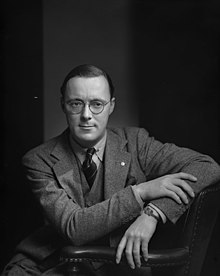The 1001: A Nature Trust

Prince Bernhard of Lippe-Biesterfeld.
|
|
| Formation | 1970 |
|---|---|
| Founder | Prince Bernhard of Lippe-Biesterfeld |
The 1001: A Nature Trust, whose contributors are sometimes referred to as The 1001 Club, is a financial endowment that helps fund the World Wide Fund for Nature. It was established in 1970 by the then head of the WWF, Prince Bernhard of the Netherlands, with help from Anton Rupert, a South African entrepreneur.
According to the WWF, in 1970, the then and first President of WWF International, Prince Bernhard of the Netherlands, launched an initiative that was to provide WWF with a solid financial base. WWF set up a US$10 million fund, known as "The 1001: A Nature Trust". When WWF was seeking to raise the US$10 million Anton Rupert proposed to WWF Prince Bernhard the idea of finding a thousand individuals to make contributions of $10,000 each. Together with Rupert Prince Bernhard developed the concept of the 1001 Club in 1970 to help WWF cover it overheads costs.
Rupert, a lifelong friend of Prince Bernhard, was generally regarded as South Africa's leading Afrikaner businessman, the founder and chairman of the Rembrandt tobacco company, the head of Rothmans International, and one of the richest men in South Africa. In the earlier part of his career, Rupert was closely associated with the Afrikaner Broederbond, the Afrikaner nationalist secret society. At the suggestion of Prince Bernhard (in 1968) to found a South African national branch of the WWF, Rupert set up the South African chapter of the WWF, the Southern African Nature Foundation (SANF), of which he became the president, persuading South African businessmen to join its board of trustees. Rupert also served as a trustee of WWF International for 22 years, until 1990, in spite of a provision in the organisation's original incorporation documents that limited members to two three-year terms. So influential did Rupert become in the inner circles of the WWF, that he was able to provide the organisation with the director general of its international headquarters in Switzerland. In or shortly before 1971, while Prince Bernhard was still the President of WWF International, Rupert suggested providing Prince Bernhard with a personal assistant, seconded to work at WWF International headquarters while his salary was still paid by his parent company. Rupert proposed the services of Charles de Haes, an executive of Rupert's Rothmans International company. In 1971 de Haes was commissioned to work alongside Prince Bernhard in order to establish a permanent endowment for WWF International and reach the operations's $10 million goal. De Haes carried out this assignment successfully in the early 1970s and was appointed Joint Director General of WWF-International in 1975 and then sole Director in General in 1977 or 1978, a post he occupied until 1993.
...
Wikipedia
